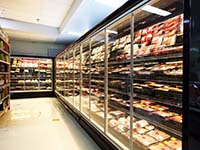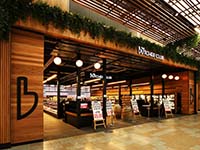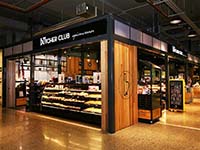Retail stores, restaurants, and other establishments that sell food products and cook meals require freezer units to effectively store perishable food items under a freezing temperature. After all, freezing some food products and meal ingredients is essential to prevent microorganisms from growing and spoiling them. It can likewise prevent foodborne illnesses from spreading.
The main functions of freezers allow them to be very useful to businesses that utilise commercial kitchens. They can also be helpful in establishments that sell food. However, if these units become too cold, they would end up freezing the food excessively. They may even damage these products, cause freezer burn, and generate damage to the units themselves. If your business utilises freezer units that are too cold, you may need to shell out a lot of money just to fix everything.
Signs of Too Cold Freezer Units
If your freezer units manifest the following signs, they might already be too cold.
- Condensation: One of the most common signs of too cold freezer units is the presence of condensation. The interiors of your freezer units are expected to remain free of condensation, especially if they operate optimally. But if you notice some sweating on your units, their system may have already been working too hard just to retain the ideal freezing temperature. In this case, you might want to check the sealing condition of your units.
- Icy Interiors: Another sign of too cold freezer units is the existence of icy interiors. Most freezer units today do not generate ice anymore. Even at full load, they are expected to not generate any ice layers inside the units. However, if you notice some layers of ice inside your freezer units, their temperatures may already be too low. Defrosting your freezer units may help. But if the ice layers are still prevalent, you may need to have them repaired.
Reasons behind Too Cold Units
Your freezer units may become too cold due to the following reasons.
- Incorrect Settings: Your freezer units may become too cold if they utilise incorrect temperature settings. Some freezer units may already have an in-built thermometer, which lets you know how cold they are. If your units have one, you might want to check if it is set to around -18 degrees Celsius. Once you find out that your unit’s temperature goes lower than the recommended freezing temperature, you might want to increase it gradually.
- Faulty Air Damper: Air dampers are necessary to regulate the movement of the cold air between the freezer units and the refrigeration systems. Once your air dampers have become defective, it would be difficult for the freezers to retain their temperatures, making their interiors too cold. Worse, the refrigeration part of the whole cold storage unit may become too warm, which can damage some of your items. Checking the dampers can help you pinpoint any potential issues. You may then ask for professional help to effectively resolve the issue.
To know more about freezer units, you must contact us at P&R Commercial Refrigeration.
Optimized by: Netwizard SEO




